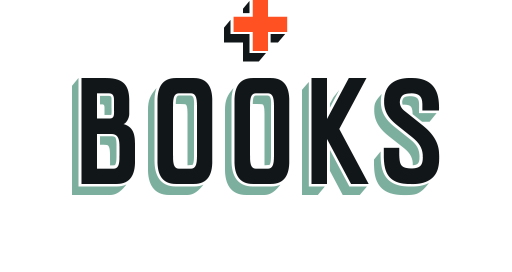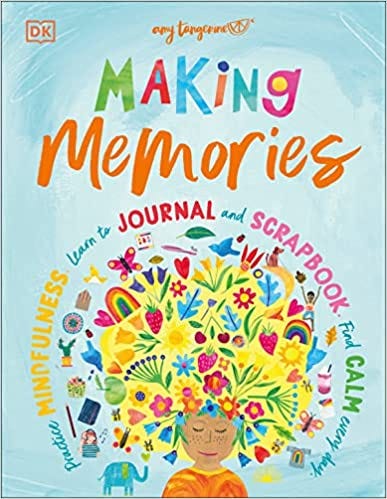Hi y’all,
I was talking to my lovely client Hallie Bateman yesterday. I’ve worked with Hallie for a long time and I love her books and I love our talks. We do this every few months or so. We chat about a specific question she has, and it usually turns into a bigger chat about future books or creative struggles or just being a creative person in the world. These chats not only make me feel useful, as Hallie’s agent and friend, but usually lead to insights of my own. Which is how we got to today’s newsletter subject. (Thanks, Hallie!)
What is the most important skill a writer can have?
I’ve talked before about trusting your gut, especially in terms of editing. It’s very helpful know the difference between the voice that says eh chapter two is a little slow and the one that says eh you know you suck at this, right? That latter is not your gut; it’s your fear, and you should ignore it roundly. This is a skill you will develop over time and when you do it will take you farther than any innate talent you might have (or wish you had) (but probably have anyway). To develop this, you have to know how to listen to yourself, which is very hard to do! We all ignore the voices that say you should probably go to bed you should not text that person buying that will not fix anything and well, we’re only human. The only way to hone this is to recognize it (usually after the fact) and try to remember it for next time. Even doing it one out of every three times is a triumph. When it comes to writing, we need that same kind of self-awareness, and it comes with the same kind of practice. You get the feedback that chapter two was slow and you knew it but just didn’t listen to yourself. Next time, you will. Or at least the time after that.1
I’ve also talked about creating a writing practice, or not, and sticking to your own deadlines. Maybe you’re a write everyday person or maybe you do not have a life that will accommodate that. Maybe you’re an outliner/plotter or maybe that makes you feel like a caged animal. This is all well and good. There is no one way. The bottom line is you can do whatever you want that gets you to your goal. That is not helpful advice!, many of you say. Tell me what to do and I will do it!, comes the chorus from the back. I know, I know. I can totally tell you what to do and you can do it and maybe it will work. These things usually worked for me, anyway. You might be lucky, too.
And when it doesn’t work (because it might not), you may feel like a failure. You didn’t write 500 words a day or your morning pages or follow your wall of index cards or whatever it is that someone (me!) told you would make a book magically appear on your computer. But you are not a failure!!! And the advice wasn’t bad! It just might have not been the right advice for YOU. Someone else’s plan isn’t necessarily going to work for you because it was someone else’s plan! You are not them and they are not you. So, what then?
The answer is self-awareness. I know! I’m sorry! I don’t actually want to know that much more about myself thankyouverymuch! But I am afraid that’s how you build a sustainable writing practice and skills enough to make your work the best it can be (notice I didn’t say and get published. No one can promise you a foolproof plan for that, even me). Kelly O’Connor McNees talked about this in the Evil Witches newsletter that Claire Zulkey writes (full disclosure, all clients :) ). Claire asked how Kelly managed to write a book during the pandemic with a kid at home and she said:
Getting up really early before everybody else is up has always been one of my ways of getting it done. But I hate when people say that, because then you picture someone that’s so disciplined. I go in spurts where I do that for two weeks and then I get really exhausted because I’m getting up too early and I’m not going to bed early enough. Then I have a meltdown, and then I sleep in for three days, and then I’m mad at myself. It’s never a smooth process, but I keep hacking away at it.
This isn’t an anecdote about the virtues of getting up early. Or a cautionary tale about failing to do that. It’s about knowing that the starting and stopping, the getting up too early and they staying up too late, is the pattern, not a failure. Yes, the next step might remembering that going to sleep earlier makes writing in the morning easier, but it’s not like Kelly doesn’t know that. We ALL know that. It’s that when she gets to the sleep in for three days part that it’s ok, that she’s human, that she needs sleep, and she can get back on the horse in a few days. That’s what I’m talking about here. The answer is not to never write in the mornings again because she can’t do it perfectly every day. It could be that it works better as a week on/week off thing, or every other day, or three days a week—whatever works FOR KELLY. (Hi Kelly, sorry to use you as an example here. Everyone buy her new book IT’S AMAZING.)
Skip here if you just want the answer.
The most important skill you can have as a writer is self-awareness. I’m sorry if that sounds lame. It’s true though. If you know you can’t write in the mornings, don’t try to write in the mornings. You might be able to write in the mornings and it might work for a while, but if it makes you irritable and overtired and a horrible person to everyone else in your life (I don’t mean you, Kelly!) then maybe it is not working as well as you think, and you need to try something else. You might be able to write 3,000 words a day every day and pop out a book in a month, but if you develop Vitamin D deficiency and carpal tunnel, is it really working? I’m not (only) talking about work life balance. I’m talking about knowing the difference between what works, and what works for you. I’m talking about the difference between understanding what’s the voice in your head that tells you how to edit your work, and your inner critic that strikes at vulnerable times. The voice that says go read the ending again and the one that says what makes you think people will read this? The former can hear when you recognize the bullshit of the latter. Know thyself, and all that. It’s corny, but it’s true.
The only way you can develop this is time and work. You can journal about it and talk to your writing group and read this newsletter, but it only works with practice. You only discover getting up at 5am is not for you by getting up at 5am. You only develop editorial instinct by having something to edit. Luckily, the results of this are not only increased self-awareness, but maybe also a book. Or two. Or essays. Short stories. Comics. Whatever you’re doing. It’s win-win.
There are points in our lives where we don’t have it in us to cultivate self-awareness. It’s ok. You might not be ready for it. You can still practice, though. And that practice is what you are probably already doing, at least a little. It’s writing. When in doubt, just keep doing that. The self-awareness will come.
Happy pub day to Amy Tangerine!!!! Her latest book, Making Memories is out today from DK and it is a beautiful mindfulness journal for kids. Get yours right now!!!
Take care, my friends.
OXOXOX,
Kate
Speaking of writer’s intuition—I knew when writing that paragraph that it was meandering and too long. I knew that in my gut. So when I did my editing pass I made sure to address this, and the paragraph you read above is much shorter, and hopefully more coherent, than the one I wrote first. Editing! Self-awareness! It works!




Sage advice! There's no prescription apart from "know thyself". And if you don't already know thyself much, all you can do is try the different approaches and see which one sticks for you. I would add that different approaches will work/not work at different points in your life, too.
https://slithergame.org - Take advantage of other players' mistakes. When a snake dies, it leaves behind a large number of orbs. Be quick to grab these, but beware of other players trying to do the same.